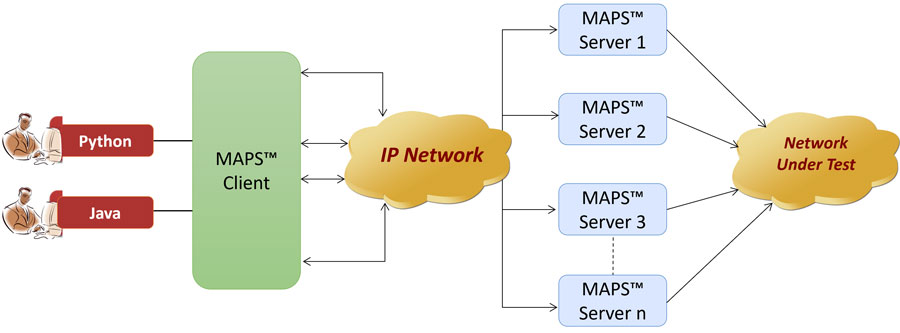GL Announces APIs for Protocol Simulation and Conformance Testing
Gaithersburg, Maryland, USA – July 18, 2016 - GL Communications Inc., announced today API's support for custom development of its versatile Protocol Simulation and Conformance Test Tool referred to as Message Automation & Protocol Simulation (MAPS™).

Speaking to press, Mr. Jagdish Vadalia, a Senior Manger for Product Development of the company said, ‘GL's Message Automation & Protocol Simulation (MAPS™) is a flexible, script driven platform used to generate protocol signaling messages and bearer traffic. Each variant of MAPS™ is delivered with a set of scripts which offer a working, out-of-the-box state machine to get users up and running right away. These scripts (and the messages they send) are also fully customizable so that users can develop their own complex test cases and implement custom/proprietary usage of the protocol. All variants of MAPS™ use the same software architecture and proprietary scripting language, meaning once a user is comfortable and familiar with one version of MAPS™, his knowledge is readily transferable to every other version.”
He added, “This script-based flexibility makes MAPS™ an appropriate test tool for almost any testing paradigm, including: Functional regression testing, Long duration, high volume performance orload testing, Protocol conformance testing, Negative testing, IVR traversal, Interoperability testing, Voice Quality testing.
The call control scripts can also automatically handle the generation and reception of bearer traffic over the established call. MAPS™ supports transmission and detection of various traffic types over IP (RTP, GTP), ATM, & TDM over established calls with the support of necessary hardware. The types of traffic supported are: Analog and TDM Traffic, RTP Traffic, Mobile Traffic, and Short Message Service (SMS) Test Solutions.”
Mr. Vadalia explained about the newly added API capability to MAPS™ frame work, “The new API allows for programmatic and automated control over all MAPS™ platforms. Each MAPS™ server can receive multiple client connections and offer independent execution to each client. Likewise, each client is able to connect to multiple MAPS™ servers, including servers running different protocols, permitting complex cross-protocol test cases.”
He further added, “In addition to existing Tcl and VBS APIs, GL is now offering Python and Java APIs for most variants of MAPS™. The new API is written using an object-oriented coding paradigm, designed to give the user simple and intuitive containers for their messages, calls and regressions.
The new API is divided into “High” and “Low” level function calls. High level scripts leave the protocol logic to the underlying call control script on the MAPS™ server. A Low Level call control scripts transplant that logic to the API language, giving the user full control over signaling. This necessarily leads to more complex API scripts but it gives the user complete control over the state machine. The MAPS™ API is also now fully integrated with GL’s VQT software which delivers PESQ/POLQA scores (i.e. waveform analysis, rather than packet analysis).”
 Back to Press Releases Index Page
Back to Press Releases Index Page